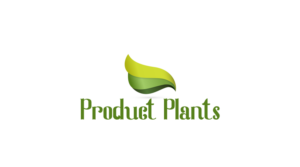In dairy farming, the health of the herd directly correlates to the farm’s success. Healthy cows produce better milk and contribute to a more profitable operation. A comprehensive strategy that addresses every aspect of cow health—from nutrition to disease prevention—is essential for sustaining high productivity and ensuring the long-term success of the dairy farm. Below, we’ll break down the key elements of maintaining a healthy and productive dairy herd.
The Importance of Proper Nutrition
Providing cows with a well-balanced diet is one of the most important factors in supporting their health and productivity. A diet that meets the nutritional needs of cows at each stage of their life ensures they stay healthy, produce high-quality milk, and maintain good reproductive health. For instance, lactating cows require a high-energy diet that includes plenty of protein, calcium, and vitamins to avoid complications like milk fever and ketosis, which can hinder milk production. Implementing a solid feeding program with appropriate supplements ensures cows remain in top condition.
Optimizing Reproductive Health
Managing reproductive health is vital for maintaining consistent milk production. By establishing a breeding schedule and monitoring estrus cycles, farmers can ensure that cows have a regular lactation cycle. Post-calving care is essential to prepare cows for the next reproductive cycle, and early pregnancy detection helps identify potential issues before they affect milk production. Healthy reproductive management ensures cows stay productive year after year.
Maintaining Hoof Health for Comfort and Mobility
Hoof health plays a significant role in keeping dairy cows comfortable and productive. Lameness can make it difficult for cows to walk, graze, and produce milk. Regular hoof trimming and care are necessary to prevent lameness and ensure cows can continue to move freely without discomfort. Cows spend a lot of time standing or walking on hard surfaces, making hoof care a crucial part of the overall health program.
Disease Prevention: Safeguarding Cow Health
Regular vaccinations are essential for preventing diseases that could affect milk production. Respiratory infections, leptospirosis, and bovine viral diarrhea are just a few examples of diseases that can negatively impact herd health and farm productivity. Routine health checks, parasite control, and biosecurity practices help prevent the spread of disease and ensure cows remain healthy throughout their lives.
Creating a Cow-Friendly Environment
The living conditions of dairy cows are just as important as their diet and health care. Providing cows with a clean, dry, and well-ventilated environment reduces stress and helps prevent health issues. Proper barn hygiene, fresh bedding, and adequate ventilation minimize the risk of respiratory problems and improve overall well-being, contributing to higher milk yields.
Preventing Mastitis for Optimal Milk Production
Mastitis is a major concern in dairy farming as it can significantly reduce milk quality and quantity. Preventive measures such as regular udder health checks, clean milking procedures, and maintaining good hygiene are essential to reduce the risk of mastitis. Early detection and prompt treatment help prevent long-term damage and ensure cows stay healthy, contributing to consistent milk production.
Incorporating these practices into a comprehensive dairy cow care program helps farmers optimize the health and productivity of their herd, leading to better milk yields and overall farm success.
For more detailed information on ensuring the health of dairy cows, refer to the accompanying resource, developed by Rhinehart Development a provider of dehorners for cattle.


